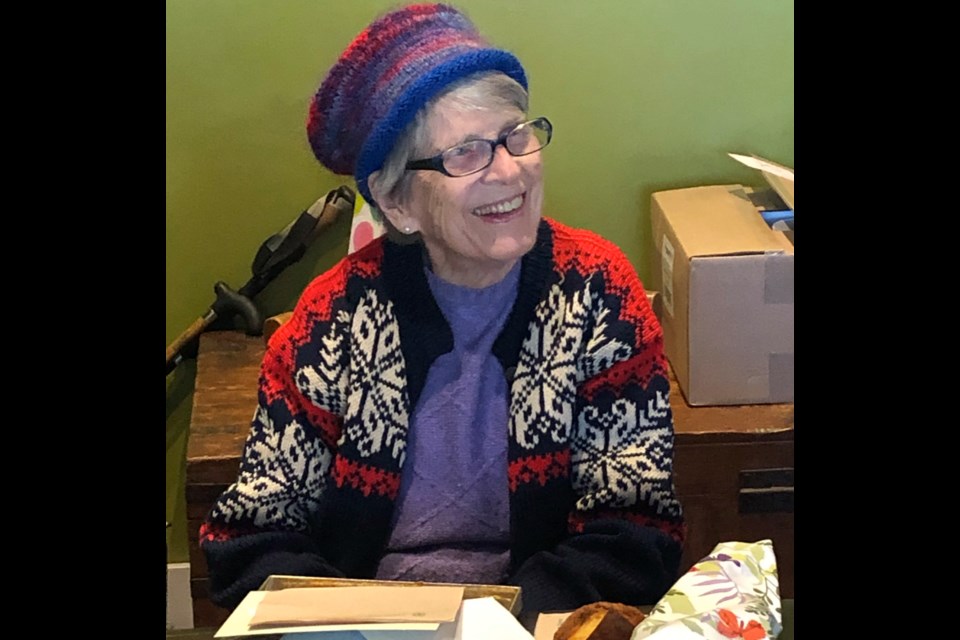There was a time not so long ago when you couldn’t visit someone’s home on Bowen without seeing Irene Howard’s landmark history of the island displayed prominently on a sidetable.
This year marks the 50th anniversary of the publication of Bowen Island 1872-1972. Commissioned by the Bowen Island Historians, with its evocative front page photo of an old Union Steamship, the book quickly went into a second, then a third printing, then a fourth, and copies are still available at the local museum.
Irene Howard died last month, just short of her 101st birthday, ending a remarkable life that took her from a hard-scrabble childhood as the only daughter among the five kids of a peripatetic, immigrant miner to a respected career as an academic and published historian. At an early age, she had been shooed away to the kitchen, as her mother Ingeborg Nelson breathed her last on the living room sofa, worn out from the hardship of raising a perpetually cash-strapped family always on the move.
Howard’s moving memoir, Gold Dust On His Shirt, is a vivid account of her family’s working class struggles, skillfully woven with events of the time. In addition to numerous historical articles, she published two other books: Vancouver’s Svenskar, a history of the Swedish Community in Vancouver, and The Struggle for Social Justice in British Columbia: Helena Gutteridge, the Unknown Reformer, the definitive, prize-winning biography of Vancouver’s first woman councillor, who spearheaded myriad progressive causes during the early decades of the 20th century.
But for local residents, Howard’s legacy lies with her detailed history of Bowen Island, which is a story in itself. Back in the 1960s, longtime islanders Katie and Dick Carter noted the passing of an increasing number of Bowen pioneers. Not wanting their stories to be lost, they marked Canada’s 1967 Centennial by forming Bowen Island Historians, a grassroots group dedicated to researching and preserving the island’s history. Out of this emerged the bold decision to commission Irene Howard to write a book detailing Bowen’s first 100 years.
Amplifying the work the amateur historians had already done, Howard combed historical records, sifted through old family letters, verified island anecdotes, and interviewed numerous old-timers to produce what Vancouver Province reviewer Alan Jessup called “a fine and substantial record of the island, its pioneers, and some who still make their homes there.”
As an aside, coming across a copy of Howard’s history by chance, Filipino journalist and radio host Joseph Lopez noticed a mention on Page 36 of Filipino Ben Flores living on Bowen in 1898. Intrigued, Lopez researched Flores’ life, eventually producing a four-part radio series on the province’s first Filipino immigrant.
Author, historian, progressive intellect and feminist, Irene Howard is survived by her son Steven (Louise), and grand-children Katie and Nick.



